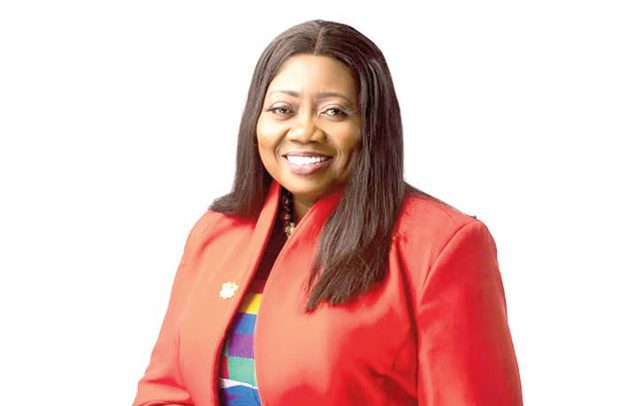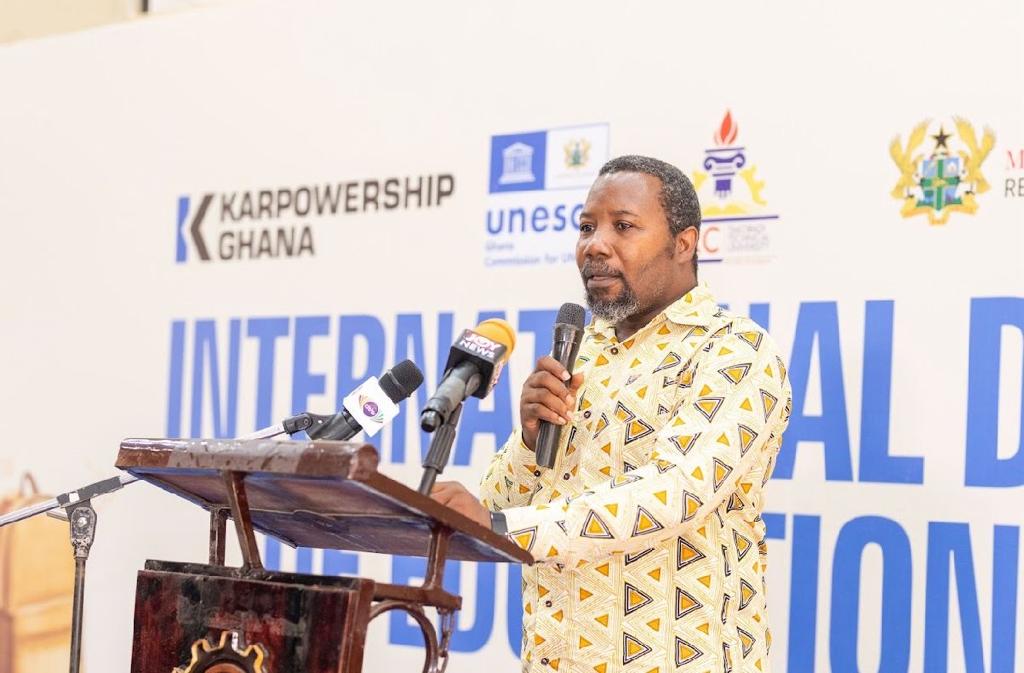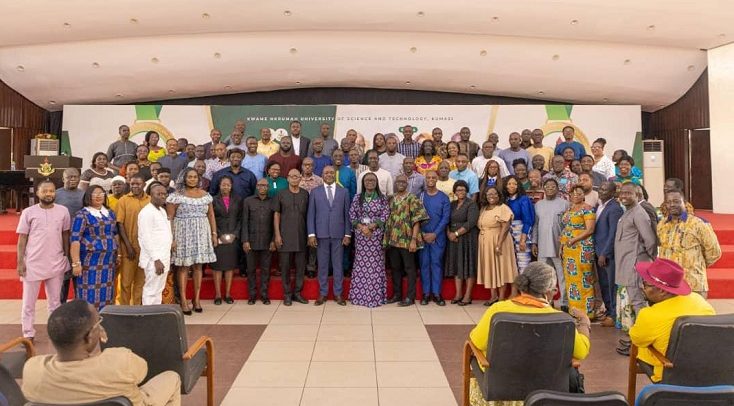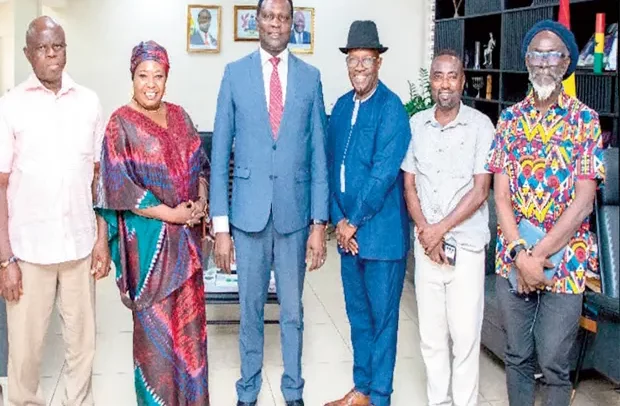
- A new moral and civic curriculum for national development
- A new moral and civic curriculum is necessary
- Addressing ethical decline through education reform to protect our democracy.
By Hene Aku KWAPONG
Ghana is facing a critical challenge—a decline in discipline, weakening respect for institutions, and an erosion of ethical values.
Political discourse has become hostile, social media is plagued by misinformation and cyberbullying, and many young people lack an understanding of their civic responsibilities.
If Ghana is to reverse this trend, it must reform its Religious and Moral Education (RME) curriculum into a more comprehensive Civil and Moral Education (CME) course.
To reverse this trend, Ghana must reform its Religious and Moral Education (RME) curriculum into a more comprehensive Civil and Moral Education (CME) course.
This new approach will go beyond religious instruction and focus on practical ethics, leadership development, and civic responsibility, ensuring that young Ghanaians are disciplined, thoughtful, and prepared for national service and leadership.
At the heart of this reform are 12 core character traits that will guide the curriculum, shaping students into responsible, ethical, and visionary citizens.
This transformation will go beyond religious instruction to focus on practical ethics, leadership development, and civic responsibility, ensuring that young Ghanaians grow into responsible, disciplined, and ethical citizens.
Why the current RME curriculum falls short
For years, Ghana’s Religious and Moral Education (RME) curriculum has focused on teaching values through religious texts from Christianity, Islam, and African Traditional Religion (ATR). While this has played a crucial role in shaping moral behavior, it does not fully equip students to handle the modern ethical challenges they will face.
Figure 1 – Ghana RME Curriculum

The key weaknesses of the current system include:
Too Much Focus on Religion, Not Enough on Practical Ethics
While religious teachings offer moral guidance, they do not address the complexities of digital ethics, civic responsibility, or leadership accountability. There is also insufficient emphasis on fostering respect for institutions and the rule of law.
Lack of National Development and Civic Education
Many Ghanaians do not understand the country’s governance system, their rights as citizens, or the importance of respecting national institutions. As a result, political engagement often descends into confusion, hostility, and a lack of decorum rather than informed debate.
No Structured Approach to Teaching Social Media Responsibility
Fake news, cyberbullying, and online defamation are growing problems, yet schools do not teach students how to engage responsibly in digital spaces. This has eroded respect for one another and the institutions that govern society.
Absence of Ethical Leadership Training
Many young people believe success comes from connections and corruption, not integrity and hard work.
Ghana’s leaders of tomorrow must be trained in accountability, transparency, and ethical decision-making, with a strong emphasis on respecting institutions and upholding societal decorum.
Clearly, Ghana’s moral education system must evolve to meet these modern challenges and address the growing need for respect, decorum, and morality in society.
Here is Ghana’s RME course compared to some of the best practices across the world:
| Ghana | Singapore | South Korea | Japan | Finland | Canada | Sweden |
| Citizenship, ethics, and religious values | Character and citizenship education (CCE) | Moral and ethical development, social harmony | Moral character development and societal contribution | Ethical reasoning and societal responsibility | Diversity, inclusion, and civic engagement | Equality, democracy, and environmental ethics |
| – Religious teachings (Christianity, Islam, traditional beliefs) | – Core values (e.g., respect, responsibility, resilience) | – Confucian values (e.g., filial piety, respect for elders) | – Respect for others and nature | – Critical thinking and empathy | – Respect for diversity and multiculturalism | – Gender equality and human rights |
| – Moral values derived from religious principles | – Social-emotional learning | – Social responsibility and community ethics | – Group harmony and cooperation | – Environmental and global awareness | – Ethical decision-making and social justice | – Environmental sustainability |
| – Respect for religious diversity and tolerance | – National identity and multicultural harmony | – Environmental awareness | – Perseverance and self-discipline | – Human rights and equality | – Community involvement and volunteerism | – Social responsibility and community ethics |
| – Ethical decision-making guided by faith | – Cyber wellness and moral integrity | – National pride and global citizenship | – Traditional values (e.g., honesty, empathy) | – Collaborative problem-solving | – Anti-bullying and mental health awareness | – Critical thinking and media literacy |
| – Community service and social responsibility rooted in religious duty | – Community involvement | – Anti-bullying education | – Civic duties and global awareness | – Democratic participation and civic engagement | – Indigenous reconciliation and cultural understanding | – Democratic values and active citizenship |
Ghana’s emphasis on religion in its moral education curriculum, highlighting the integration of religious teachings (Christianity, Islam, and traditional beliefs) as a foundation for ethical values and community responsibility has made religious studies inordinately not supportive of modernization agenda of development.
Introducing Civil and Moral Education (CME): A 21st-Century Solution
The Civil and Moral Education (CME) curriculum will be a broader, more practical course designed to teach students not just morality, but also civic engagement, ethical leadership, and social responsibility.
Key Themes of the CME Curriculum
The new curriculum will focus on five core themes that will shape students into critical thinkers, responsible citizens, and ethical leaders:
| Theme | Key Lessons | Impact on Society |
| Moral and Ethical Decision-Making | Integrity, honesty, and respect for institutions | Develops individuals who act ethically and uphold decorum in all aspects of life. |
| Citizenship and Civic Engagement | Governance, democracy, and the rule of law | Creates informed citizens who participate in responsible political discourse. |
| Digital and Social Media Ethics | Cyberbullying, misinformation, and respectful dialogue | Reduces online harassment and misinformation, promoting responsible digital behavior. |
| Ethical Leadership and Work Ethics | Accountability, transparency, and professional ethics | Trains future leaders who value integrity and fairness over corruption. |
| Environmental and Social Responsibility | Climate change, community service, and sustainability | Fosters a culture of volunteerism and care for the environment. |
This new approach will ensure that students understand ethical dilemmas and apply their knowledge in everyday situations to foster a culture of respect, decorum, and morality in Ghana.
Developing Ethical Citizens: The 12 Core Character Traits of CME
To truly reform moral education, students must be shaped by key character traits that will define their mindset, discipline, and vision for national development. The CME curriculum will focus on 12 essential character traits to build responsible and ethical individuals:
Transcendence
- Behaviors: Appreciative, inspired, purposive, optimistic, creative, future-oriented.
- Why It Matters: Transcendence helps students see the bigger picture, innovate, and stay motivated, driving national progress.
Drive
- Behaviors: Passionate, vigorous, results-oriented, demonstrates initiative, strives for excellence.
- Why It Matters: Instills ambition and determination, ensuring students become high achievers and problem-solvers.
Collaboration
- Behaviors: Cooperative, collegial, open-minded, flexible, interconnected.
- Why It Matters: Strengthens teamwork, diversity, and social harmony, crucial for national unity and development.
Humanity
- Behaviors: Considerate, empathetic, compassionate, magnanimous, forgiving.
- Why It Matters: Builds trust, kindness, and understanding, fostering peace and social cohesion.
Humility
- Behaviors: Self-aware, modest, reflective, curious, continuous learner, respectful, grateful, vulnerable.
- Why It Matters: Encourages lifelong learning, open-mindedness, and respectful leadership.
Courage
- Behaviors: Brave, determined, tenacious, resilient, confident.
- Why It Matters: Prepares students to face challenges, take risks, and stand up for what is right.
Accountability
- Behaviors: Takes ownership, accepts consequences, conscientious, responsible.
- Why It Matters: Builds trust and reliability, ensuring students take responsibility for their actions and decisions.
Justice
- Behaviors: Fair, equitable, proportionate, evenhanded, socially responsible.
- Why It Matters: Encourages fairness, respect for the law, and ethical decision-making.
Temperance
- Behaviors: Patient, calm, composed, self-controlled, prudent.
- Why It Matters: Develops resilience, emotional intelligence, and discipline, essential for effective leadership.
Judgment
- Behaviors: Situationally aware, cognitively complex, analytical, decisive, critical thinker, intuitive, insightful, pragmatic, adaptable.
- Why It Matters: Helps students think critically, assess situations accurately, and make sound decisions.
Integrity
- Behaviors: Authentic, candid, transparent, principled, consistent.
- Why It Matters: Ensures students act with honesty and fairness, the foundation of trustworthy leadership.
Circumspection
- Behaviors: Thoughtful, cautious, reflective, strategic, foresightful, deliberate, prudent, risk-aware.
- Why It Matters: Helps students think deeply, anticipate consequences, and make well-informed decisions.
These traits will ensure that students not only understand morality but also live by it, contributing to Ghana’s national development.
How the New Curriculum Might Be Put into Action
For the Civil and Moral Education (CME) curriculum to make a real difference, it needs to be carefully introduced and supported. This means making sure teachers are ready to teach it well, and students are assessed in a way that matches the new goals of the curriculum.
First, teachers will be specially trained. They won’t just be expected to figure it out on their own. Instead, they’ll receive support and guidance on how to teach key topics like how government works, how to behave responsibly online, and how to become ethical and respectful leaders. This training will give them the tools they need to help students grow into thoughtful, disciplined citizens.
Second, how students are evaluated will change. Instead of relying only on written exams, the new curriculum will include practical and character-based assessments. For example:
- Community service will be required. Every student will need to take part in volunteer activities. This will help them learn the importance of helping others and caring for their communities.
- Behavior and participation will matter. Teachers will pay attention to how students conduct themselves—whether they are respectful, cooperative, and engaged in class and school life.
- Debates and case studies will be used in class. Students will talk about real-life ethical situations and learn how to discuss issues respectfully, even when they disagree. This will help them think critically and communicate effectively.
In short, the CME curriculum will be more than just another school subject. It will be a full experience that prepares students for life—not just tests.
A Possible Rollout Approach
The Ministry of Education will first pilot the CME curriculum in selected schools before expanding it nationwide. This phased approach will allow adjustments and improvements based on educator and student feedback.
If properly implemented, the CME curriculum will bring transformative change to Ghana’s society:
| CME Reform | Expected Impact on Ghana |
| Civic education and governance training | More disciplined and informed voters, reducing political tensions and fostering national unity. |
| Leadership ethics and anti-corruption lessons | Encourages transparency and integrity in government, business, and civil society. |
| Digital responsibility education | Reduces fake news, cyberbullying, and online hostility, promoting responsible digital engagement. |
| Debate and discussion-based learning | Cultivates a culture of respectful and informed discourse in media and politics. |
| Mandatory community service | Strengthens national unity, volunteerism, and social responsibility. |
What Ghana Stands to Gain from CME
If properly implemented, the new Civil and Moral Education (CME) curriculum has the potential to bring significant improvements to Ghana’s social and political landscape.
By teaching citizens about their rights, responsibilities, and how government systems work, the curriculum will create more disciplined and informed voters.
This will help reduce tensions during elections and encourage greater respect for democratic institutions, leading to a more stable political environment.
Including lessons on ethical leadership and the dangers of corruption will foster a culture of accountability and transparency in government.
This will help restore public trust in institutions and ensure leaders act with integrity, ultimately improving governance.
Additionally, with the rise of technology, educating students on responsible online behavior will help combat issues like fake news, cyberbullying, and online abuse. This will create a safer and more respectful digital space for everyone.
Encouraging students to engage in respectful debates and discussions will promote critical thinking and informed conversations. This skill will translate into more constructive dialogue in the media and politics, reducing polarization and fostering collaboration.
Finally, requiring students to participate in community service will instill a sense of volunteerism and responsibility. This will strengthen national unity, encourage respect for communal spaces, and build a culture of collective effort toward national development.
If Ghana is to become a disciplined, democratic, and forward-thinking nation, moral education must go beyond religious instruction. The introduction of Civil and Moral Education (CME) is the next logical step in building a society that values respect for institutions, decorum, and overall morality.
By equipping young people with the tools to navigate moral challenges, engage constructively in national issues, and use digital platforms responsibly, Ghana can foster a new generation of ethical leaders, engaged citizens, and disciplined professionals.
The Ministry of Education must take action now to ensure that our schools prepare students not just for exams, but for life as ethical, respectful, and responsible Ghanaians.
It is time to rethink moral education. The future of Ghana depends on it.
The post Revamping education appeared first on The Business & Financial Times.
Read Full Story

























Facebook
Twitter
Pinterest
Instagram
Google+
YouTube
LinkedIn
RSS